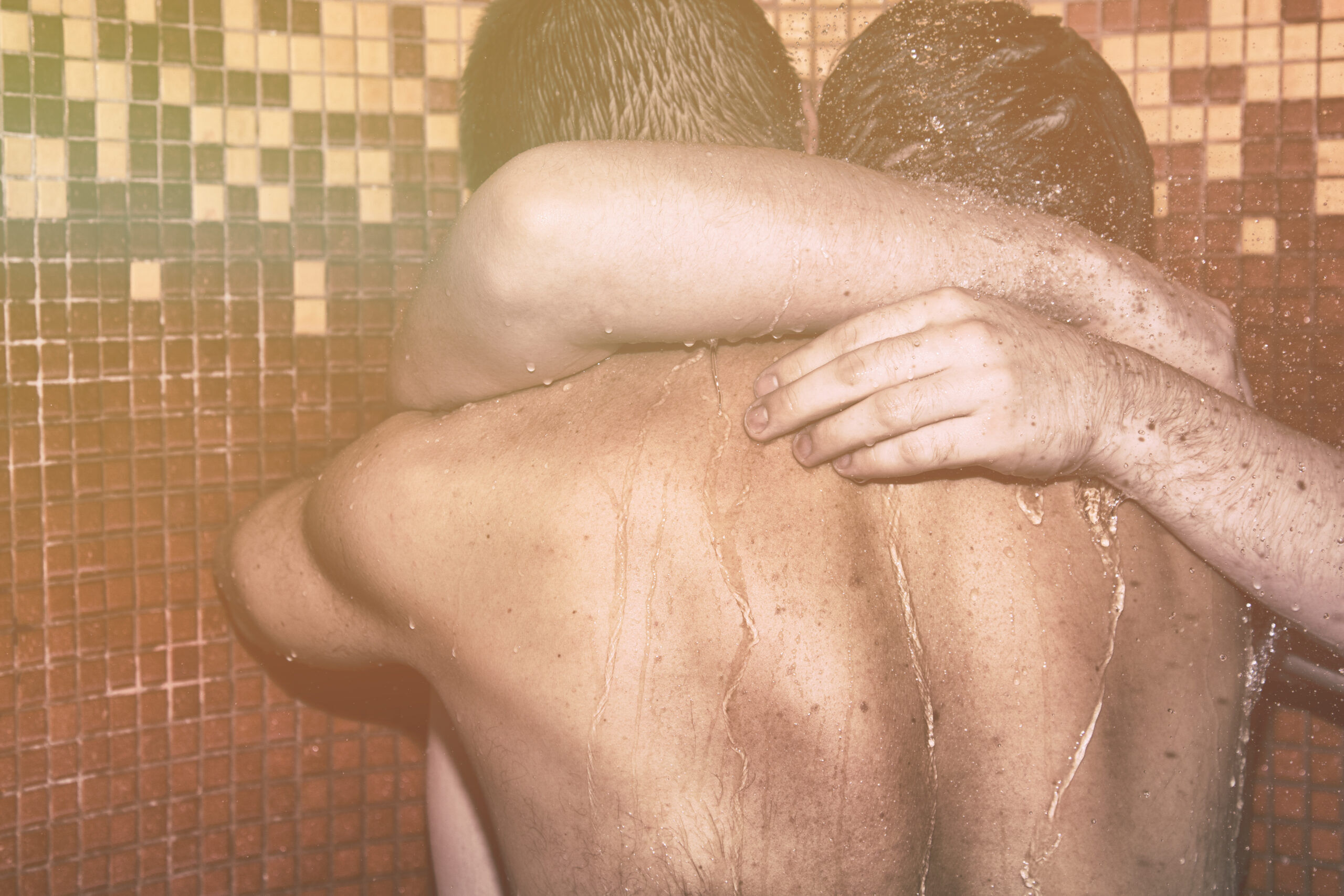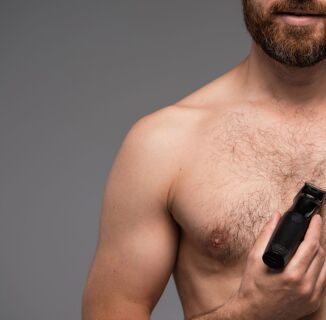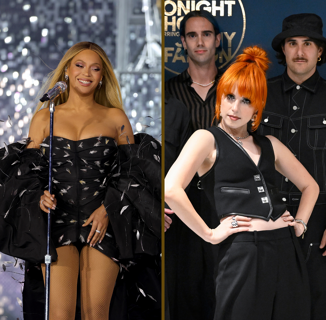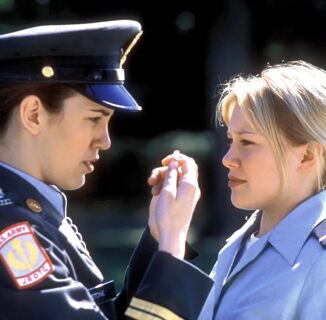As 2018 was about to ring in, patrons at Man’s Country, a gay bathhouse in Chicago’s Andersonville neighborhood, filled its rooms and dancefloors body-to-body for one last blowout. 2017 was about to close, and so was Man’s Country.
Men shed their clothes and stuffed them into white paper bags that, laid out in rows on the floor, constituted a coat room. The night’s unofficial attire by consensus was harnesses and jockstraps. As 2018 began, speakers thumped music until noon on January 1, drag queens sashayed on stage and patrons fucked the pain of 2017 away.
Among those in the crowd was Jason Jackson, a 40-year-old black gay man living in Chicago. Though he’d lived in Chicago for the last 12 years, he’d never been to Man’s Country before. He wasn’t really a fan of bathhouses. And, among the Chicago set, the club carried a stigma: only older gay men went there.
Jackson was surprised at how cavernous it was, the dance floor’s immensity, and the grandiose labyrinth of penises that flopped out of their owners’ pants. Because it was January in Chicago, Jackson wore a flowy winter wool coat to the venue. The paper bag coat room was full, so he stashed the coat in dark corner. Later, after a half-hour search, he found it, untouched. Now that the space is gone, Jackson said, he wishes he and it had had more had time together.
“Would’ve kind of been nice to save it and have that as an option for people to go to,” Jackson told INTO. Jackson said that, in the weeks leading up to New Year’s Eve, when Man’s Country held a series of themed closing parties, his Chicago-based friends took to Facebook to share their regrets that they had not appreciated the space before its demise.
“It’s a loss to the community,” Jackson said. “It still had dive status, I find charm in dives. You could’ve had skating parties, that’s how big it was. Now I’m really mad. We could’ve had skating parties, it would’ve been so perfect!”
It might be a bit odd to hear Jackson speak about the potential of a queer-owned business open since 1972. Man’s Country, to some, had perhaps lived more lives than Super Mario. It innovated to stay alive, morphing from bathhouse to performance space to dance club, with more identities in between.
Despite the many hats the physical space has worn, it was still set to close. Another queer space gone with more party and less alarm. But why?

Gentrification Of Queer Spaces & History
In the 1970s, according to USA Today, nearly 200 bathhouses operated inside the United States, with the number plummeting down to 90. The number of establishments has hemorrhaged down to about 70.
Before bathhouses were gay, they were a place for people of all genders and orientations to show before the advent of indoor plumbing. As toilets and showers became common, bathhouses became places for male rendezvous. As usual, gays made paradise out of the leftover scraps.
Man’s Country opened in 1972. It was founded by Chuck Renslow, a leather man icon and founder of the International Man of Leather competition. The business survived open hostility towards queer-owned businesses, the Reagan Era, and the AIDS crisis, but couldn’t live past the first day of 2018. Gentrification, a lack of general upkeep, and Renslow’s death led to the business’s demise. Soon, Man’s Country, sold to developers, will be gone. Construction crews will re-plough the plot and start to build luxury condos.
For Man’s Country’s clientele, the place resembled a queer museum as much as it was a venue for sex. Through the years, Man’s Country morphed out of necessity. It had a large dance floor with four performances a week.
Disco divas like Thelma Huston crooned on stage, while smaller-name performers would appear to garner enough reviews to get them booked at larger venues. During the AIDS crisis, as desire for public sex waned, Man’s Country repurposed about a third of its space as a queer bar that welcomed women and people of color into its fold. Its dancefloor, according to current owner Ron Ehemann, Renslow’s partner until his death in 2017, boasted the best sound system in the city.

“It’s a living piece of history,” Fausto Fernos, who hosts the daily queer podcast Feast of Fun with his partner Marc Felion, told INTO. Fernos and Felion are both artists who have performed in bathhouses, including Man’s Country. “They paved down paradise and put up a parking lot.”
As Michael Musto wrote in the New York Times in 2016, gay bars have waned in the age of geo-social apps like Grindr. But that problem is perhaps less a question of technology and more of economics. Gay bars have closed because of rising rents as gay areas become prime gentrified real estateand that same gentrified fate befell Man’s Country.
But while both gay bars and no-frills sex venues are closing due to queer spatial migration away from “gay ghettos,” bathhouses face a more complex layer of stigmas than most neighborhood watering holes. While gay bars might deal with outside threats, like monied neighbors who resent a bar’s impact on property values, bathhouses face a cultural shift away from public sex, as well.
On some level, yes, it’s policy. In New York, for example, bathhouses like the Mineshaft closed due to stricter laws governing venues offering public sex. Passed in 1994, New York’s Sanitary Code 24-2.2 bans any establishment where “anal intercourse, vaginal intercourse or fellatio take place.” Giuliani’s campaign to clean up New York City shuttered other public sex venues, like porn shops and theatres, in the late 1990s.
They paved down paradise and put up a parking lot.
And while places to have sex may be on the decline, sex is not, no matter how often newspapers report millennials don’t like bumping uglies. As Rich Juzwiak explored in Jezebel, major cities like New York City have a thriving underground sex scene consisting of hosted parties in private apartments. As upper-crust queers move from marginalized to making money moves, the apartment orgy has, in many ways, replaced the bathhouse. It has its bourgeoisie benefits: its exclusive, people can control the guest list. And, in an economy where you can rent out your car or your physical labor, renting out your apartment for a sex party can also be a lucrative side business.
Put bluntly: spaces for sex are not declining. They’re thriving. What is endangered, however, are democratized spaces for public sex.
Sex parties are spaces over which queer patrons can exert an enormous amount of control. They can restrict people from coming based on height or weight or any quantitative or qualitative criteria they envision. As with any queer space, bathhouses were not exempt from racism, femmephobia or transphobia. But, as opposed to private parties, they were at least meant to be places that were open to those who could afford the fee. Many private parties operate on sexual network nepotism and trimmed guest lists.
This exclusivity is part of a larger trend in queer spaces toward exclusivity. Gentried bastions like Yass, the San Francisco social club, require an average of $150 membership per month. And, oh, it’s backed by gay conservative billionaire Peter Thiel, who helped bankroll the Hulk Hogan lawsuit that took down news site Gawker.
While business like Yass, corporations like Steamworks or gay dance clubs might be able to survive, Man’s Country was too big a business with too narrow a mission to keep afloat.
“I’m not sure that today’s gay culture could support something as big as Man’s Country, supporting it and keeping this old structure in good repair,” Ehemann, the bar’s current owner, told INTO. Amid massive real estate hikes and Renslow’s declining health and eventual death, Ehemann wondered if the space could reinvent itself like it had done in the past. It was a bathhouse, a performance space, a queer bar. Could it, like Madonna, eek out other reinvention? Eventually, Ehemann said, the answer was no.
The latest Yelp review are harsh and buttress the reality that the huge facility had gone full Miss Havisham. A broken sauna, musty carpets, showers malfunctioning: the list goes on.
Gentrification has played a large role, as well, as evidenced by the business’s being replaced by condos. Local outlets have named Andersonville, Man Country’s turf, as one of the most gentrified neighborhoods in Chicago.
Perhaps for some, in the age of Postmates, Uber Eats and Grindr, bathhouses come off as passé. And, unlike slap bracelets or “Wannabe,” they don’t benefit from nostalgia.
Fernos and Felion ascribe at least part of the current bathhouse malaise to latent ageism. While there are definitely some queers interested in queer history and what came before, too many are obsessed with the new-fangled and glitzy. Bathhouses, they suspect, may be too associated with dark, dank sexuality and not the bright screen of a smartphone.
“A lot of it is tied to the sense that this is something in our past and as gay people we have a sense of profound rejection of history because it’s old and old people can’t be trusted, or old people are gross,” Fernos said.
The bathhouse may conjure up feelings of shame or stigma, while private parties tout luxury and convenience as part of their allure. And house parties feel more exclusive and communal, like getting an invite to a friend’s open bar work party.

“We’ve Changed”
Culturally, gay sex is now mainstream. In 2011, Saturday Night Live aired a faux-game show skit where contestants asked who between a pair of celebrities was the top and who was the bottom. In 2017, Billy Eichner bent Colton Haynes over on American Horror Story and thrusted into him. Larry David, once again on Saturday Night Live, joked about getting an upset stomach from taking his PrEP.
If gay sex has seeped into our everyday parlance, then why have bathhouses become passe rather than popular? Aside from the availability of exclusive sex parties and apps, the venues themselves carry hefty stigma, both for their sexual nature and outdated attitudes about the human body.
“There is a threshold you need to cross,” Fernos said of going to a bathhouse. “You need to stand there and be naked. You’re wearing a towel. You’re in a space where others can observe you being sexual.”
People also like to be nude in public less than in earlier generations, meaning less people will want to wander down a bathhouse hallway. In a 2015 New York Times article, gym designers said many gym locker rooms have been redesigned to accommodate millennials, who cherish privacy over public nudity.
“Gay bathhouses didn’t change,” Fernos said, “we changed.”
The gay bathhouse has never been defined solely by its sexual nature, though. As recently as the 1960s, Bette Midler was a twentysomething whose stardom was simmering in New York City’s Continental Baths where, backed by pianist Barry Manilow, she made gay men guffaw with her badwy humor and moved them with her big voice. And, as Man’s Country, proved, bathhouses can accommodate more than just men looking for a routine ejaculation.
Those who spoke to INTO said that the gay bathhouse still has a place in queer culture and should, in fact, look past the orgasm as its main draw. Specifically in Chicago, Ehemann said, there is room for another bathhouse outside of the Boystown neighborhood, where Steamworks has its Chicago location. The club would have to be smaller than Man’s Country, but, Ehemann said, “I’m not sure that lockers and rooms is enough anymore.”

With private parties for fucking and bars for socializing, there seem to be fewer ways for bathhouses to move forward. But, these spaces, perhaps even more queer than straight bachelorette-invaded gay bars, can still serve a purpose. Male-identified queers still want to fuck, but maybe they don’t need or want spaces devoted solely to that function.
“Socialization is still relevant and important,” Ehemann said. To that end, he offered that bathhouse owners should remember that they offer a physical queer space that apps sometimes cannot.
But, in order to thrive, queer public spaces will have to continue to offer a worthwhile alternative to what is swiftly becoming a private, network-based sex economy, which can often be exclusive of low-income people, people of color and other marginalized groups. Where private parties boast a controlled environment, bathhouses introduce a number of x-factors that can potentially sour or sweeten an evening.
That unpredictability is something that bathhouses should lean into, Fernos and Felion, who have hosted many comedy nights and variety performances inside bathhouses, said. Aside from being more democratic around sex, Fernos said that the spaces are prime realty for younger performance acts who are less polished.
“The performances that I saw there were wild and crazy and cheesy and crude and sloppy and at the same time, wonderful,” Fernos said. “Everybody is worthy of attention. I think that’s a beautiful thing to celebrate.”
Felion said that the draw should be, more than anything, the opportunity to test one’s own desires and maybe, be surprised at who they find attractive in person.
“You’re going to get rejected,” Felion said. “If you’re not comfortable in that situation, it’s easy to dismiss it.” But, bathhouses reward boldness. People can encounter faces and situations they might not from their own home.
“The thing about bathhouses is,” Felion said, “there’s a lid for every pot.”
__
Man’s Country photos courtesy of Brittany Sowacke for The Chicago Reader
Header photo credit: Fausto Fernós, www.feastoffun.com
Header photo design: Jules Mclean
Help make sure LGBTQ+ stories are being told...
We can't rely on mainstream media to tell our stories. That's why we don't lock our articles behind a paywall. Will you support our mission with a contribution today?
Cancel anytime · Proudly LGBTQ+ owned and operated
Read More in Culture
The Latest on INTO
Subscribe to get a twice-weekly dose of queer news, updates, and insights from the INTO team.
in Your Inbox














